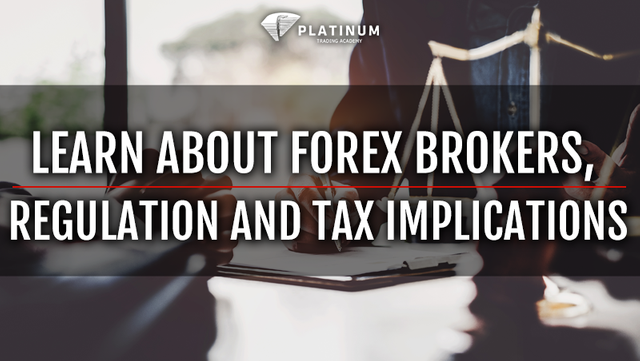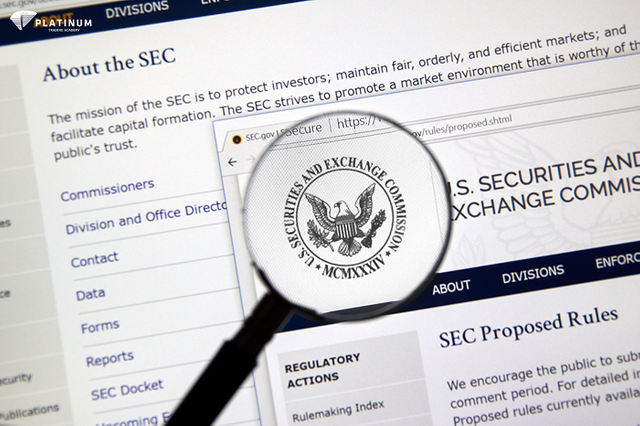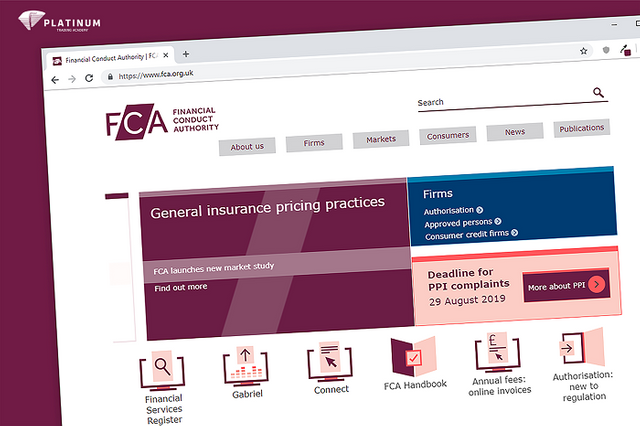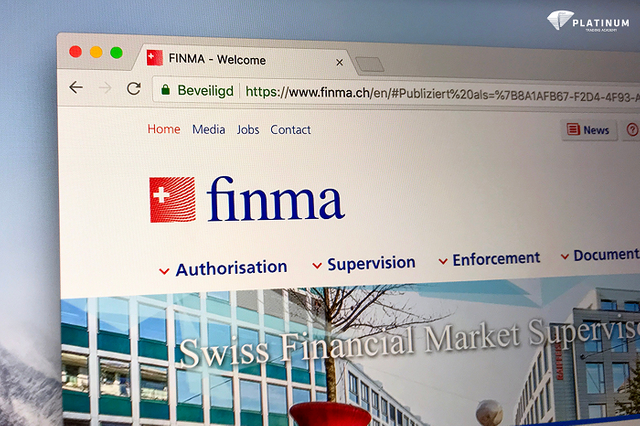LEARN ABOUT FOREX BROKERS, REGULATION AND TAX IMPLICATIONS AROUND THE GLOBE FOR FOREX TRADERS

“Nothing is sure, but death and taxes.” The famous line from the “Meet Joe Black” movie couldn’t apply to a better industry than trading.
We all pay taxes (or we should be) and, more importantly, should not be afraid of doing so. As a member of society, taxes represent each individual’s contribution to society’s welfare. The higher the taxes, the higher the living standard.
However, not everyone lives in tier-1 countries around the world. Some places rank higher, some other lower, and the higher the living standard, the higher the taxes to pay.
Like any activity, trading is regulated too. While the title of this article mainly addresses Forex trading taxation around the world, we should add that it isn’t only about Forex trading.
Because brokers offer different financial products from a Forex trading account, the tax implications fall into different categories too. For instance, suppose you like a brokerage house and open a trading account to speculate or invest in the Forex market.
However, the same account gives you access not only to the foreign exchange market. You can trade commodities (gold, oil, platinum, silver, etc.), bonds, indices, CFDs on stocks from various exchanges, cryptocurrencies, and so on.
In other words, when you fill your taxes, you can’t just fill for Forex taxes. More likely you’ll look for a general term, like day trading. Or, capital gain, depending on the part of the world you have your fiscal residency.
Determining the Fiscal Residency
This is the first step to consider when paying taxes. The fiscal residency, by all means, it is NOT the place you live.
You may have a holiday home in Ibiza and spend there three months a year, trading for a living. But, if you’re from a different country other than Spain, your fiscal residency is in that country.
For a country to be a fiscal residency, one needs to live there for more than six consecutive months a year. From that moment on, you need to register with the fiscal authorities and your fiscal residency changes. In other words, you’ll end up paying taxes following the fiscal regime of the new country.
Taxes on Forex Trading
Most of these taxes are paid on profits. For a retail trader to continually make a profit on the currency market, it means he/she most likely trades for a living.
As such, some form of a business entity is required. Most successful retail traders around the world (only about five percent of all retail traders make money constantly) choose to trade under a self-employed status.
This differs from country to country, depending on local incentives and legislation. But, in general, the idea is the same, paying taxes on the profit made a net of other expenses.
In other words, as a legal business entity (self-employed), you have some costs you can deduct. Like, for instance, part of your rent, and, in general, a percentage of house expenses corresponding to your office (if you work from home). Or, the rent paid for your office, if you trade from a rented space.
Furthermore, in some other cases, even losses help. As painful as it may be to lose when trading, one can deduct those losses from the general business activity and pay fewer taxes in the end.
Important Jurisdictions Around the World
Before going into specific details for each region, it is worth mentioning that the more developed the region or country is, the higher the likelihood of the state coming for your taxes. This sounds a bit extreme, but in some parts of the world, there’s simply no infrastructure to collect such taxes.
But in the developed world, the taxman always comes, no matter how hard one tries to hide. In the end, avoiding taxes for the moment may look like a smart decision, but rarely institutions like the IRS (Internal Revenue Service) in the United States miss their mark.
Another thing to consider when interpreting regulation on trading around the world is that…it is subject to changes. Many countries fell behind the curve when it comes to regulating this business, due to the increase in popularity of trading. Hence, anything valid today may change in the blink of an eye. Eurozone is a great example, as the new MiFID II regulations changed the trading industry from its core.
Trading Taxes in the United States of America
One of the biggest trading communities in the world comes from the United States. The market is highly regulated, and not any financial product is suitable for U.S. investors. SEC (Security and Exchange Commission) is one of the toughest regulatory bodies in the world.

In fact, if you check most of the brokers that advertise in the rest of the world, they aren’t allowed to sign up U.S. traders. That’s, obviously, because of regulations and the adjacent costs that come along with it.
The leverage available to United States traders is 50:1, as ruled by the Commodity Futures Committee (CFTC) in 2010. Moreover, the Dodd-Frank Act makes it mandatory to trade only with a counterparty regulated in the United States.
Some of the major brokers operating in the United States: Forex.com, Oanda, Ameritrade, ATC Brokers, thinkorswim.
Spot Trading
Most Forex traders are active on the spot market. These investors are called OTC (Over-the-Counter) investors, and they pay taxes according to the 988 IRC section.
Also called “988 traders”, these traders fill their taxes under the Internal Revenue Code section 988 into effect since December 1986. It regulates capital losses and gains when trading or investing in foreign currencies. The net losses, if any, for the traders in this category, come under ordinary losses and can be deducted.
But there’s one thing you need to know about the 988 traders. Their nickname is “losing traders.”
That’s right: if you have a losing year (which is often the case), like a trader from the United States, you’re better off filing your taxes under the 988 IRC section.
However, profitable traders use the 1256 section. It is a common section to declare Forex profits, taxed at the 60/40 treatment.
Effectively, it means that traders pay 15% on 60% of total capital gains, and a maximum 35% (the maximum share of your current income tax bracket) for the remaining 40%.
So why would profitable traders select the 1256 section over the 988 one? The answer comes from the greater tax break. In comparison, under the 988 section, there is no capital-loss limitation to treat losses against income.
One more thing to consider when trading from the United States. For large accounts, different forms need to be filled. To give you an example, if you have a large account and have a multi-million dollars loss, you may need to fill for Form 886.
Trading from the United Kingdom
Much confusion exists about the taxes and regulations from trading activity in the United Kingdom. The reason for it comes from the lack of understanding of the financial products traded.
In the United Kingdom, trading CFDs, Forex and spread betting is a speculative activity. Treated as derivatives, as there’s no underlying product owned, the HRMC interprets the income derived as tax-free.
However, there’s a catch. As always, one must dig a bit under the surface for the right answer.
Normal leverage in the United Kingdom doesn’t exceed 30:1 for retail traders, and that’s only in the case of trading major currency pairs. The leverage decreases exponentially for commodities and reaches 2:1 in the case of cryptocurrency trading.
Major brokers in the United Kingdom: Interactive Brokers, City Index, FXCM.

While no stamp duty applies to CFDs, one needs to pay capital gains tax. Depending on the situation, some tax-free allowances exist, but that’s a case-by-case study.
The curious thing is that everyone in the U.K. seems to prefer spread betting as it is tax-free. That’s correct, up to one point.
If you trade for a living (i.e., income from trading is your primary source of income), CFDs provide a more tax-efficient way of trading. Spread betting is, indeed, tax-free, but only as long as it isn’t your main source of living.
If it is, all profits will be taxable. As a secondary source of income, tough, spread betting is tax-free.
On actual Forex trading (that is, trading with a true ECN – Electronic Communication Network), stamp duty, capital gains tax, and other charges apply to what you make.
So, if we are to compare the three (Forex, CFD, and spread betting) in the United Kingdom, no recommendation fits all markets. Instead, it depends on the category you fill in as a trader.
The FCA (Financial Conduct Authority) is the financial regulator in the United Kingdom and operates independently of the U.K. Government.
Forex Taxes in Japan
In Japan, traders pay a 20% tax on foreign exchange and stock trading income, with changes in regulation coming from the cryptocurrency market. Trading financial markets are very popular in Japan, and Forex, in particular, is well-spread on the island.
It is a bit surprising that a closed culture, reluctant to almost everything that is new, has such a strong appetite for risk. In any case, the FSA (Financial Services Agency) in Japan is responsible for regulating the Japanese markets.
Trading from Canada
Canada has a straightforward way of dealing with income from day trading. No matter the market traded, two situations exist.
In Canada, you can declare your profits either as a capital gain or business income. In a way, it mirrors the U.S. system, because if you incur losses, it is better to declare profits as business income. If not, if you buy and sell as an investment, the capital gains tax is recommended.
CRA (Canadian Revenue Agency) is the regulatory body in Canada and supervises the related activities when it comes to taxes due. However, any Forex broker wanting to offer its services to Canadian residents (e.g. Oanda, Forex.com), must be regulated by IIROC (Investment Industry Regulatory Organization of Canada).
Forex Trading Taxes in Australia
The Australian Tax Office doesn’t charge anything on trading. More precisely, no capital gains tax exists.
However, when trading for a living, the implications are that there’s a “business-like” activity going on. For that, the Australian Tax Office requires that you pay taxes as a regular business.
For infrequent trading, though, that’s not required. But if you have to pay taxes on your income when trading Forex in Australia, you’ll end up paying after any expenses, net of losses at the personal tax rate.
Representative brokers like Pepperstone or IC Markets offer leverage up to 500:1, depending on the type of the trading account.
India Forex Trading Tax Rules
Indian traders are active in financial markets. Luckily for them, the taxation system is straightforward and easy to understand.
The secret in India is to prove under what type of activity your trading style fits. If it is speculative, you must pay a speculative income tax.
The next question that arises is: what is a speculative activity? For traders, that’s a no-brainer: scalping is speculative.
Scalping means intraday trading, or not keeping any open positions overnight. In other words, a trade can take from a few seconds to a few hours, but all trades must be closed at the end of the trading day.
Swing traders and investors fall into a different category. Called speculative business income, the profits and losses are added to the other income.
Eurozone and European Union
This is a case-by-case situation. As not all countries part of the European Union are members of the Eurozone, there are differences on how to tax such income.

Therefore, each country has its own fiscal rules in place. In general, we can say that profit and losses are deducted from income.
If you trade as a hobby, in your spare hours, then most likely you need to declare your profits at the end of the year, as extra income. They’ll be considered on your annual declaration.
If you trade for a living and organized as a business, profits and losses are declared monthly or quarterly (depending on the business).
Most international Forex brokers are active in the European Union, but regulation recently tightened severely. The maximum leverage is 30:1 unless you decide to apply for a professional trading account, meaning a minimum deposit of over 500k and actively trading your portfolio (option available in the United Kingdom too).
Conclusion
Trading and paying taxes go hand in hand. After all, the same is valid for all businesses. Why would trading be different?
Avoiding paying taxes leads to the same outcome as doing that in any other industry: penalties apply. In the U.K., for instance, there’s a five percent penalty on the amount you owe every month. Compounding that over several months, and it’s not funny anymore.
To sum up, paying taxes on trading differs from country to country and region to region. Each fiscal jurisdiction has its own rules traders must obey.
What’s really important to consider here is that, together with trading’s rise in popularity, the regulations will adapt too. While it may seem as more advantageous to trade in some parts of the world than others, that can change in a blink of an eye.
As always, for more clarity, seek the advice of a professional.
Hopefully, you have enjoyed today’s article. Thanks for reading!
Have a fantastic day!
Nisha Patel
Live from the Platinum Trading Floor.
Hi! I am a robot. I just upvoted you! I found similar content that readers might be interested in:
https://www.platinumtradingacademy.com/best-forex-brokers/
Congratulations @platinumfx! You have completed the following achievement on the Steem blockchain and have been rewarded with new badge(s) :
You can view your badges on your Steem Board and compare to others on the Steem Ranking
If you no longer want to receive notifications, reply to this comment with the word
STOPVote for @Steemitboard as a witness to get one more award and increased upvotes!